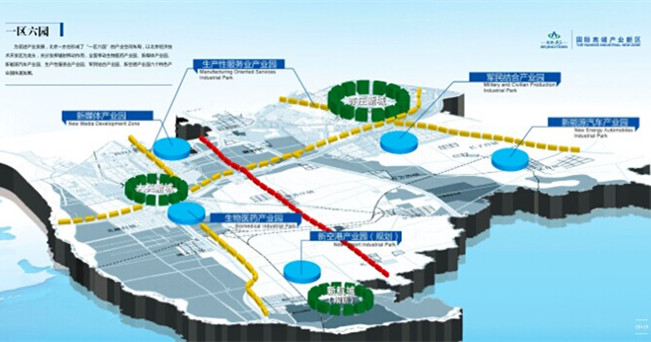China remains powerful engine for global growth
( Xinhua )
BEIJING - China's better-than-expected 6.9-percent economic growth in the first quarter has once again proved that the world's second-largest economy remains an important engine driving global growth.
The reading, the fastest increase in 18 months, was above the full-year target of 6.5 percent and the 6.8-percent increase registered in the fourth quarter of 2016.
Based on the forecast-beating data, the International Monetary Fund (IMF) on Tuesday upgraded its forecast for China's economic growth in 2017 and 2018 to 6.6 and 6.2 percent, respectively, 0.1 and 0.2 percentage point higher than its forecast in January.
With the strong outlook for the Chinese economy, the global growth forecast for 2017 was also raised by the IMF to 3.5 percent, up 0.1 percentage points from its January projection.
"This improvement comes primarily from good economic news for Europe and Asia, and within Asia, notably for China and Japan," IMF chief economist Maurice Obstfeld said.
The Organization for Economic Co-operation and Development (OECD) echoed the opinion in its 2017 Economic Survey of China, noting that the "Chinese economy will remain the major driver of global growth for the foreseeable future," as the country's GDP per capita remains on course to almost double between 2010 and 2020.
Powerhouse for world growth
In the wake of the international financial crisis, China's growth has bid farewell to the supercharged rates first recorded in the early 1990s and slowed to medium-high growth, which the country frequently refers to as the "new normal."
Against the backdrop of a sluggish world economy, China's GDP expanded 6.7 percent year on year in 2016, contributing more than a third of global economic growth, larger than the contribution from any other country, data from the World Bank showed.
China's economy will remain a powerful engine for world economic growth in 2017, as the fundamentals for China's long-term growth have not changed and the economic structure is optimizing by increasing the role of the consumption and service sectors, said Cai Zhizhou, a macroeconomics researcher at Peking University.
A total of 77.2 percent of the first-quarter GDP was driven by consumption, 12.6 percentage points higher than the 2016 level, official data showed.
In the first quarter, the service sector accounted for 56.5 percent of the overall economy, 17.8 percentage points higher than that of the secondary industry.
Stronger consumption power means huge market potential for goods and service trade across the globe, and more cooperation opportunities for the world, said Gao Yuwei, an analyst with the Bank of China's research department.
Data from the World Trade Organization (WTO) showed that China maintained its position as the World's largest goods exporter in 2016. This is the eighth consecutive year China has kept its position as the world's largest goods exporter and the second-largest importer.
Meanwhile, China is also committed to opening up wider, and a more open and advanced Chinese economy would bring investment and jobs overseas, and spread optimism among global investors, said Gao.
China attracted 126 billion U.S. dollars of foreign direct investment in 2016, the largest recipient among developing countries, official data showed.
More room for reform
Growth in the first quarter has provided opportunities for the government to advance structural reform, contain credit expansion and improve efficiency.
China should continue to prioritize reducing excess capacity, curbing the credit surge, lowering debt leverage in the corporate sector and reforming state-owned enterprises, according to the World Bank's latest report on the East Asia and Pacific Region.
The report suggests the Chinese government continue with long-term structural reforms, support new growth engines of the economy, and facilitate the economy's transition toward services and high value-added products.
The Asian Development Bank (ADB) also stressed in its report the importance for China to accelerate structural reforms to boost productivity and sustain growth momentum.
Strong consumer spending, fiscal support for infrastructure, and structural reforms to improve productivity in industry will keep China's economy on solid ground, said the ADB report.
 The Area with Six Parks
The Area with Six Parks Global Top 500
Global Top 500